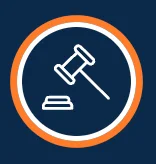As many as 94% of nursing homes face understaffing. A survey by the American Health Care Association (AHCA) found that 81% of assisted living communities say they struggle to adequately staff their facilities.
The nursing home abuse and neglect lawyers at Jordan Law Center explain how understaffing in nursing homes can lead to neglect.
10 Ways that Nursing Home Understaffing Leads to Neglect
1. Slower response times
Understaffing may mean slower response times when there are emergencies and critical events. Staff may not realize that someone needs immediate assistance. They may not have personnel available when there are multiple emergencies at once. A slower response time may mean a poorer outcome when someone falls or is choking, suffers a cardiac event, or experiences another acute problem.
2. Malnutrition, dehydration
Proper nutrition is important for everyone, especially people living in nursing homes. Meals need to be tailored to specific medical conditions. Residents need opportunities to eat and drink at the appropriate intervals. Not having enough staff on hand can lead to malnutrition and dehydration due to neglect and a decline in overall health.
3. Falls
Nursing home understaffing can mean more falls. Residents may not want to wait for staff, attempting to move on their own when they need help. In addition, a lack of staff may mean fewer opportunities to evaluate patients for needed mobility support. It may mean railings and walkways in poor condition, contributing to additional falls.
4. Bedsores
Bedsores, also known as pressure wounds, can develop quickly. In certain conditions, a bedsore can develop in only a few hours. People living in nursing homes may be particularly susceptible to pressure wounds because aging skin may be thinner and weaker. Without enough staff, a person may stay in a position too long, allowing preventable sores to develop. They may not be treated quickly, resulting in bedsores worsening. An untreated bedsore may lead to infection and pain.
5. Reduced cleanliness in general
Lower staff levels mean fewer people are available to clean the facility. When there aren’t enough staff members, workers must choose what tasks to complete. Tending to immediate needs may seem more important than general cleaning. Less cleaning may mean the spread of infection and transmission of disease.
6. Failing to observe warnings and dangers
Part of taking good care of a nursing home resident is noticing when something is amiss. Subtle changes may be signs of a serious problem. When there aren’t enough workers, nursing home neglect can mean failing to notice a warning sign.
For example, staff may not notice that a person is having a harder time moving on their own. They may not evaluate the person’s fall risk until it is too late. Tending to residents means getting to know them and their medical needs. Staff members can then identify changes and provide care.
7. Lack of movement
Nursing home residents need physical activity. Of course, in a care facility, patient needs vary. Some residents may move freely on their own and benefit from exercise and social opportunities. For others, movement may mean assistance with changing positions and modified exercise, if appropriate. A lack of physical activity can result in lower overall outcomes as well as health complications from being sedentary.
8. Medication errors and medical mix-ups
When a care facility is poorly staffed, workers must be faster. They may not carefully proofread and double-check information. The result can be a medication error, such as giving a patient the wrong dose of a medicine. It may mean giving medication to the wrong person while the person who needs it fails to get what has been prescribed to them. These mistakes can have serious consequences.
9. Less documentation
If workers are short on time, they may rush through documenting the care they provide. A caregiver may fail to take notes about something that happened or schedule a needed follow-up. Later, workers may not have the information that they need to provide adequate care.
10. Mental health
An important part of adequate care in a nursing home is addressing mental health needs. Poor mental health can lead to physical decline. Symptoms of anxiety and depression can be difficult to recognize when staff is rushing.
What is understaffing in a nursing home?
A nursing home must meet minimum staffing ratios as part of the licensing process. South Carolina Code § 44-7-262 establishes requirements for the number of licensed nurses for a nursing home. The minimum is nine residents per nurse on the day shift and up to 22 residents per nurse for the night shift.
In addition, South Carolina nursing home regulations specify that a facility must have adequate numbers of staff, with adequate training, to meet the needs of residents. The regulations create disqualifying criminal convictions, minimum qualifications, and standard hiring practices.
Can understaffing be nursing home neglect?
Yes. A nursing home has a legal duty to its residents. A person who lives in a nursing home has the right to expect adequate care, including the necessary staff to meet the needs of residents.
The legal standard is what’s reasonable, including complying with state laws and regulations that require staffing minimums.
How a lawyer can help
If a nursing home resident is harmed by neglect, understaffing may be the underlying cause. A lawyer can help you investigate whether a lack of staff contributed to what happened. They can take legal steps to identify what staff the nursing home had, what they were doing at the time of injury, and how chronic understaffing may have been a factor in harm to a resident. A lawyer can build the case for compensation and pursue your case.
Lawyer for Understaffing and Nursing Home Neglect
Have you or a loved one been harmed in a nursing home? Did understaffing contribute to neglect? Contact Jordan Law Center. We are experienced and accomplished litigators who get justice for people hurt by the actions of others, including those injured as a result of understaffing in nursing homes. Call or message us today.







“There is not enough GREAT THINGS I could say about Jordan Law Center.”